The Occitanie Pyrénées/Méditerranée region has been the port authority and owner of Sète-Frontignan’s public port infrastructure since January 1, 2007. The Region has entrusted the management of all yachting, commercial and fishing activities to the Établissement Public Régional “Port Sud de France”, created on January 1, 2008, through a delegated management agreement.
The Établissement Public Régional Port Sud de France is administered by a Board of Directors comprising 11 members appointed by the Regional Council on the recommendation of the President of the Region, Carole DELGA.

The Chairman
Philippe MALAGOLA is the Chairman of the Board.
Its commitment is resolutely focused on public service and sustainable development.
A Board of Directors composed of :
– 6 regional councillors,
– and 5 qualified people chosen by the Occitanie Region for their expertise in the commercial, fishing and yachting port sectors.
The Port’s General Manager, Olivier CARMES, participates in the Board of Directors in an advisory capacity.
The Board of Directors defines the strategic orientations of the regional public establishment and the associated resources :
– The general orientations of the Establishment’s policy,
– Its economic, social and environmental development
– Its budget,
– And iI sets the operating rules and internal regulations of the Établissement.

Port Sud de France’s Management Committee is made up of the General Manager, the Deputy General Manager and the members of the Committee.

The Port Council is a consultative body representing professional, social and associative circles, as well as local authorities and their groupings.
It is responsible for issuing an opinion on port matters of interest to the legal entities and individuals involved in its administration, and in particular to users.
The Port Council also examines the situation of the port and its evolution, as well as the tariffs for port uses.
The Port of Sète’s 2021-2025 strategic plan, approved by its Board of Directors, sets out the port’s major objectives. It makes SmartPort’s response to environmental challenges a priority, based on two key concepts that are essential today: sustainable development and innovation.
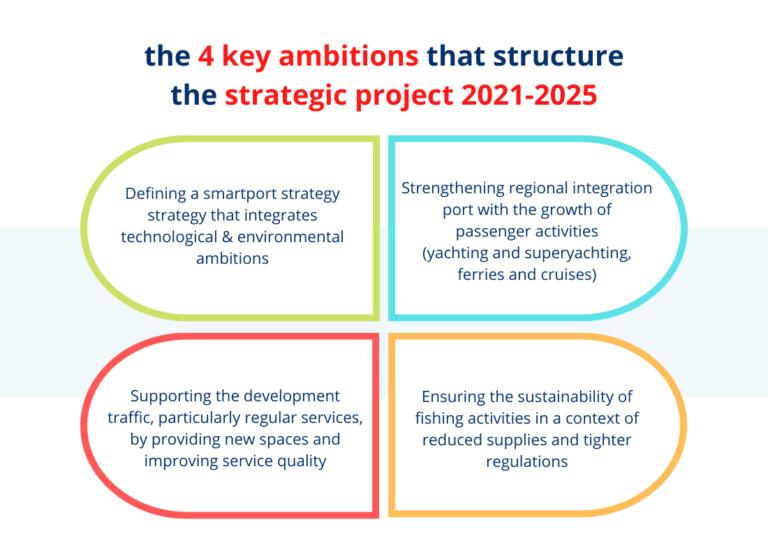
The Port of Sète’s ambition to promote the sustainable development of its activities and the energy transition requires a number of diversified actions.
As defined in its 2021-2025 strategic project, the Port of Sète-Frontignan is prioritizing the greening of its port activities, with a particular ambition to favor low-emission modes of transport.
One of the strengths of the Port of Sète-Frontignan lies in the quality of its inland connections. Thanks to its multimodal offer, the port is in a position to massify goods flows both by river and rail, factors that enhance competitiveness and respect the environment.
River transport at the Port of Sète means :
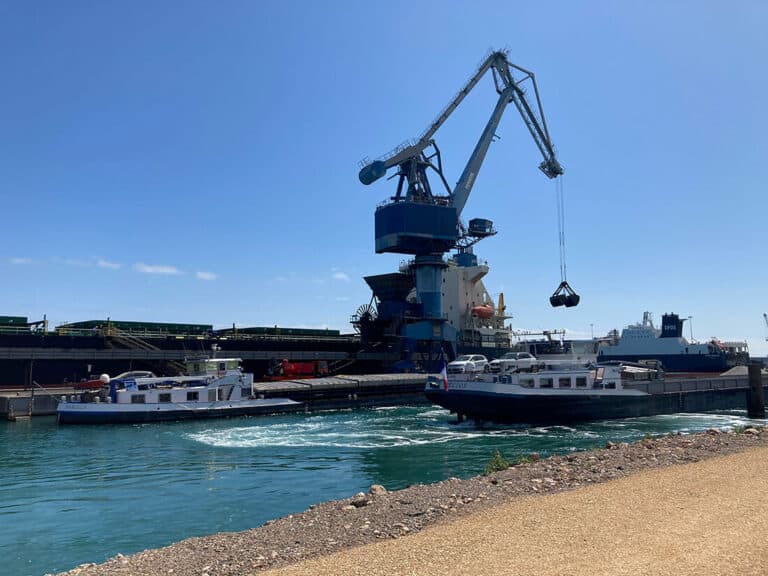
Rail at the Port of Sète means :
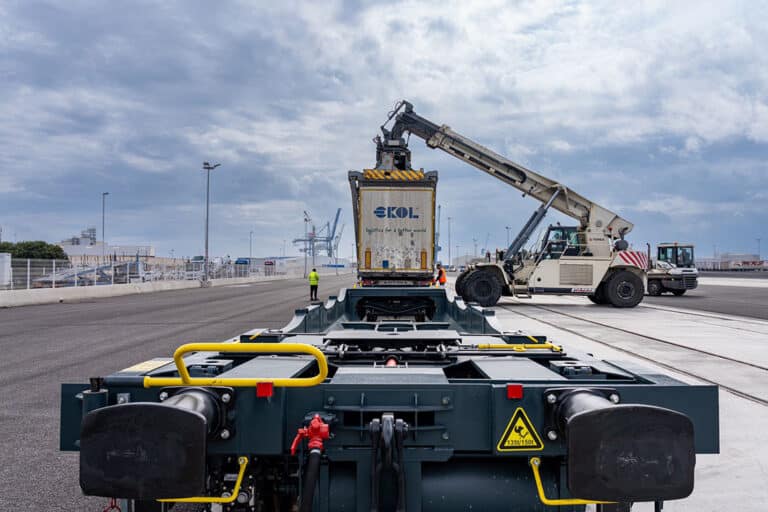

Since 2014, the Port of Sète has chosen to optimize the surface area of its available roofs by installing photovoltaic panels. Thanks to the project to remove asbestos from these roofs, the port is concluding a circular economy project, taking advantage of the asbestos removal to equip its new roofs with photovoltaic panels.
With an average number of sunny days well above the national average (2644 h in 2018, compared with 2054 h for the national average), the choice of photovoltaics was an appropriate one. By the end of 2019, more than 4 hectares of solar cover had been installed, and by the end of 2021 will produce 2.5 times the annual consumption of Port Sud de France’s 3 ports (Commerce, Pêche and Plaisance).
These developments will enable the port to become a positive renewable energy source.
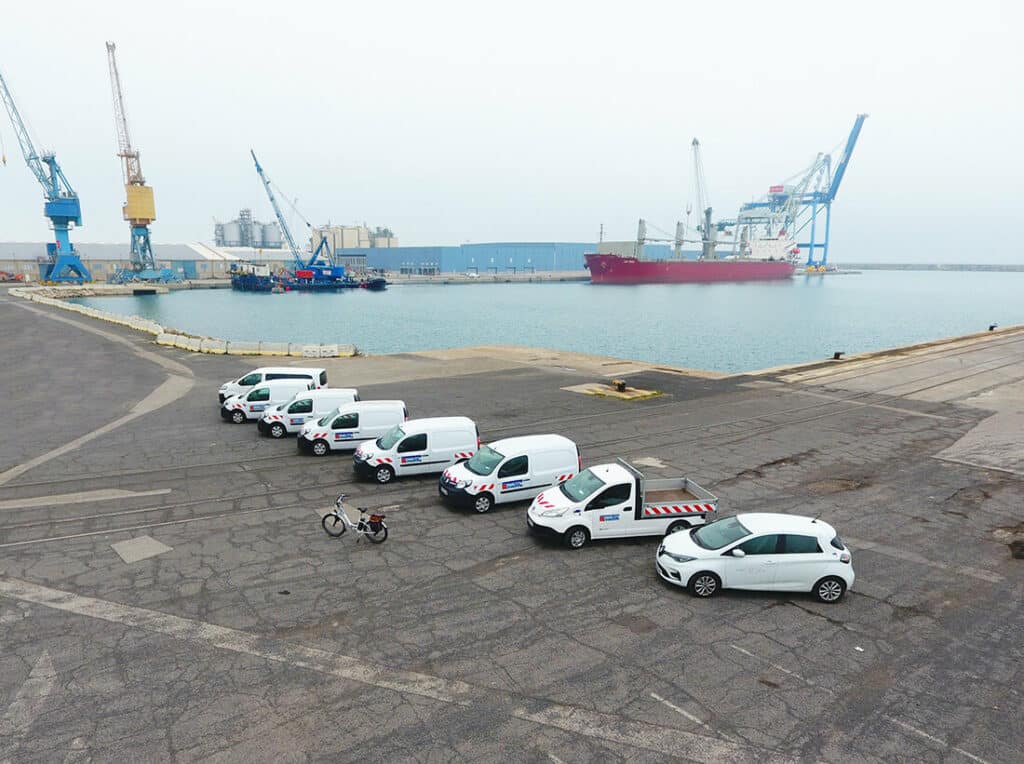
The port’s “low-carbon” strategy combines a number of actions with the aim of acting and promoting these efforts at different levels, from staff to the various port stakeholders.
In Sète, to continue the drive to reduce greenhouse gas emissions and improve urban air qualityThe Port of Sète – Sud de France has renewed its vehicle fleet by systematically integrating GHG emission-free electric vehicles, not only for service vehicles but also for utility vehicles and the latest generation of port tools (electrically-powered rail-mounted mobile crane). Electrically-assisted bicycles are also available for intra-company travel.
Since 2021, the Port of Sète has adapted its tariff policy to favor the most virtuous and cleanest ships through a bonus/malus system that affects the port of call account. A coefficient is applied according to the ship’s ESI (Environmental Ship Index).
This incentive measure , already in place in other ports, also serves to reward the most environmentally efficient vessels. Ferry owner Baleària is the latest shipowner to sign up to the measure, signing the ESI charter in September 2021.
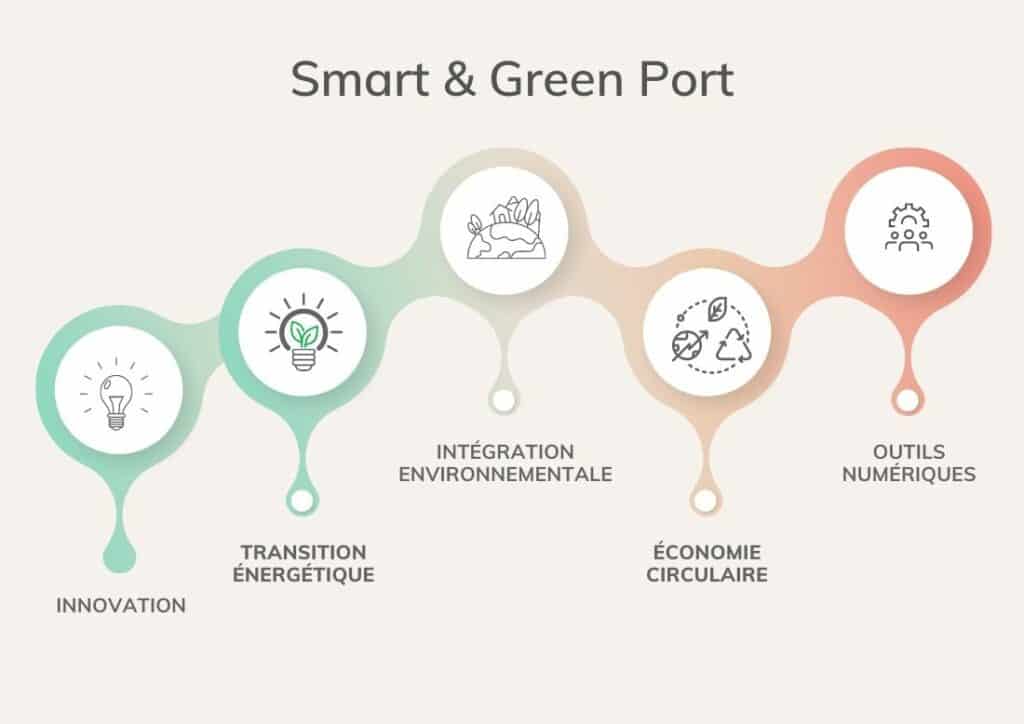
Within the company and by involving the port ecosystem, we are accelerating the implementation of innovative projects in line with 5 “Smart & Green Port” strategic challenges :
The ambition is to make the port a space for innovation and collective intelligence, with the minimum aim of benefiting all stakeholders:

The energy and ecological transition cannot be achieved without the men and women who work every day at the port of Sète. Raising the awareness of our partners and working with our teams on environmental management are the essential keys to change.
Over time, the port has changed its practices, for example replacing its entire vehicle fleet with electric vehicles (bicycles, cars, vans and passenger shuttles). For more than a decade, the Port of Sète on its 3 concessions has opted for a 0-plastic approach. This approach raises awareness among port agents and the general public, encouraging them to adopt eco-friendly practices on a daily basis.
This action is reinforced by the partnership with the association Expédition 7ème continent, which has chosen the Port of Sète as its home port.
Port de Sète © 2023 Legal notice | Site map | Privacy policy | RGAA Charter | Website creation Keole.net
